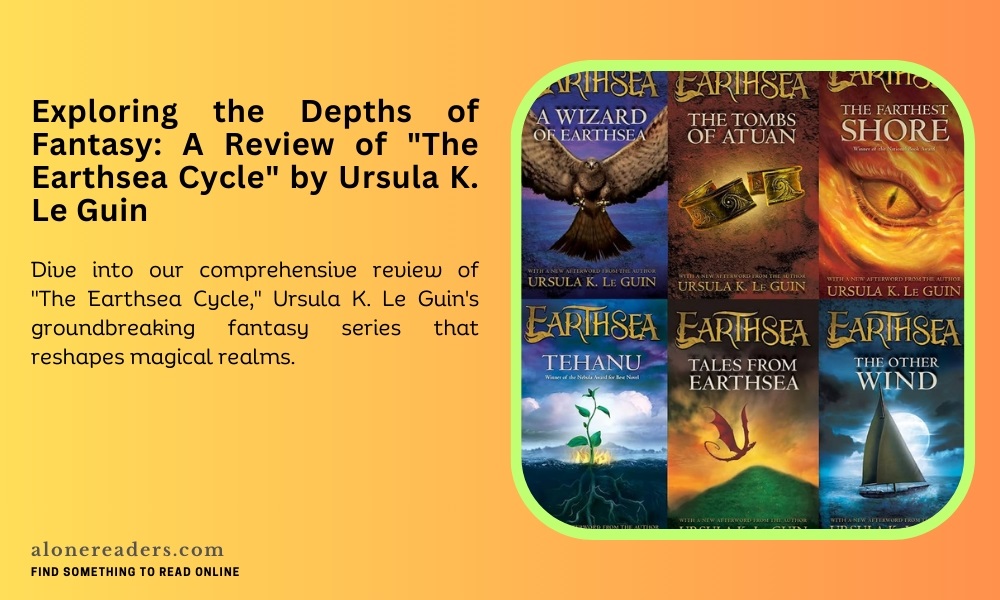
Ursula K. Le Guin's "The Earthsea Cycle" is an epic and seminal work in the fantasy genre, spanning six books and several decades of Le Guin's illustrious career. This series not only captivated readers with its richly imagined world and deep, philosophical underpinnings but also set a new benchmark for what fantasy could achieve. From the initial publication of "A Wizard of Earthsea" in 1968, Le Guin established herself as a master storyteller, whose narratives deeply resonate with themes of power, identity, and redemption.
At the heart of the Earthsea series is Ged, a young boy with innate magical talent who rises from humble beginnings to become one of the most powerful wizards in the land. His journey through adolescence into adulthood, encountering dragons, dealing with the shadows of his own making, and ultimately seeking a balance in the world, forms the crux of the early books. What makes Ged's journey particularly compelling is its deep introspection and the realistic portrayal of his flaws and triumphs. Le Guin’s ability to craft characters that are both profoundly relatable and fundamentally heroic is evident throughout the series.
The archipelago of Earthsea itself is a character in its own right. Comprised of hundreds of islands, each with its own culture and history, Earthsea is a world of sea and shadow, where magic is as much a part of the natural order as the sea is of the land. Le Guin's meticulous world-building is evident in every detail, from the intricate rules of magic to the socio-political dynamics between the islands. This attention to detail not only creates a vivid setting but also mirrors the complex real-world issues of race, power, and environmental change.
Le Guin’s narrative style is both poetic and precise, lending a mythic quality to her storytelling. This is particularly effective in her exploration of the balance of power—between humans and nature, and within individuals themselves. As the series progresses, Le Guin delves deeper into the consequences of wielding power without wisdom, a recurring theme that is meticulously examined through various characters and their interactions.
The later books in the series, including "Tehanu" and "The Other Wind," shift focus slightly to explore themes of healing and restoration. "Tehanu" reexamines the earlier parts of the Earthsea saga through the eyes of Tenar, a character introduced in "The Tombs of Atuan." This shift not only brings a fresh perspective but also challenges the established norms and power structures within Earthsea, reflecting Le Guin's own evolving views on gender and society.
Le Guin’s commitment to addressing the deeper, often darker aspects of her created world is what sets "The Earthsea Cycle" apart from many other works in the genre. Her exploration of fundamental human conflicts—such as the fear of death and the pursuit of knowledge—provides a profound commentary that remains relevant today. Each book, while part of a larger narrative, stands on its own as a testament to Le Guin's unique vision and narrative prowess.
In conclusion, "The Earthsea Cycle" is not merely a series of fantasy novels but a groundbreaking philosophical exploration that challenges and delights. It reshapes the boundaries of fantasy literature, making it richer and more introspective. Ursula K. Le Guin’s Earthsea is a masterclass in the genre, its influence echoing in much contemporary fantasy literature. For readers looking to understand the roots of modern fantasy or simply to experience a beautifully crafted tale that transcends age and time, "The Earthsea Cycle" is indispensable. Its legacy is not only in the stories told but in the conversations and changes it inspires within the minds of its readers.